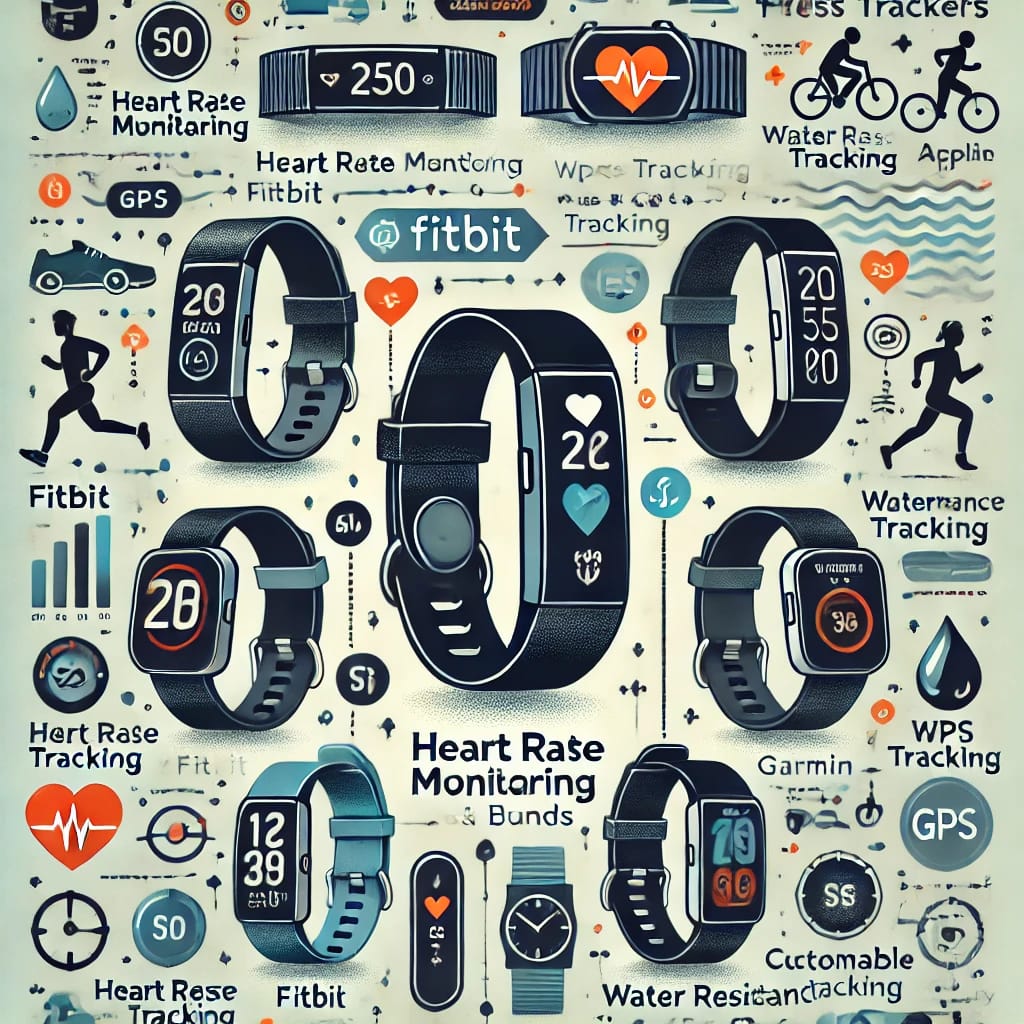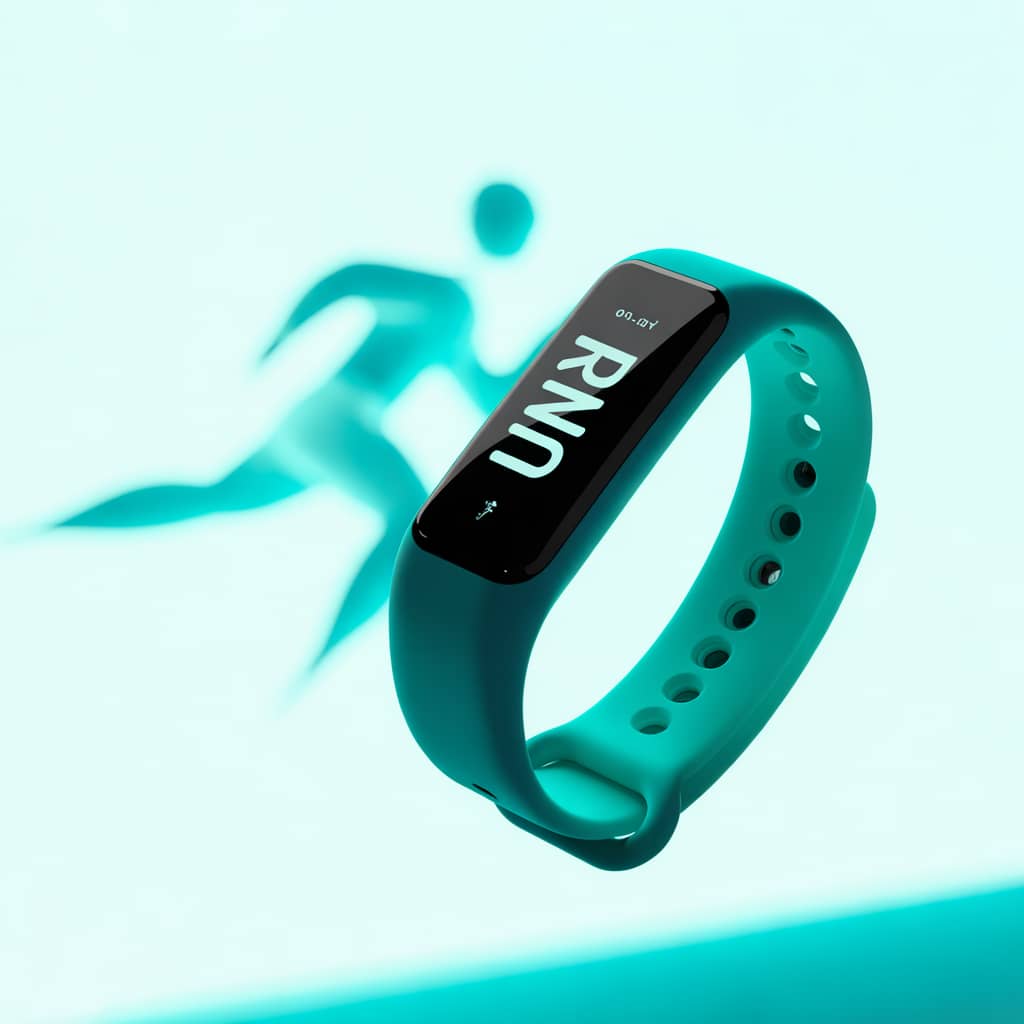
Which One Is Right For You?
Fitness trackers have become a staple in the health and wellness industry, revolutionizing the way people monitor their fitness journeys. Initially emerging as simple pedometers, these devices have evolved into sophisticated gadgets that track a multitude of health metrics. From monitoring heart rate and sleep patterns to counting steps and calories burned, fitness trackers offer a comprehensive view of your physical activity and overall health.
The evolution of fitness trackers has been remarkable. Early models were limited to counting steps and providing basic activity summaries. Modern fitness trackers now boast advanced features such as GPS tracking, continuous heart rate monitoring, and even ECG capabilities. This progression reflects the increasing demand for precise and personalized health data, driven by a growing awareness of the importance of maintaining an active lifestyle.
Using a fitness tracker provides numerous benefits. They not only help you stay motivated by setting and achieving fitness goals but also provide valuable insights into your health patterns. For instance, understanding your sleep quality can lead to better rest, while tracking your daily activity can help you identify areas for improvement. Overall, fitness trackers serve as a personal health assistant, guiding you towards a healthier and more active lifestyle.
Key Features to Consider
Heart Rate Monitoring:
Heart rate monitoring is a crucial feature for anyone serious about their fitness. It allows you to track your heart rate zones, which can help optimize workouts for fat burning, endurance, or peak performance. This feature is especially beneficial for those engaging in cardiovascular activities like running, cycling, or HIIT workouts.
GPS Tracking:
For outdoor enthusiasts, GPS tracking is indispensable. It enables you to track your routes, distance, and pace accurately. This is particularly useful for runners, hikers, and cyclists who want to monitor their progress and explore new trails without getting lost.
Water Resistance:
If you’re a swimmer or diver, or even if you just want a tracker that can withstand the occasional splash, water resistance is a must. Many modern fitness trackers offer varying degrees of water resistance, allowing you to track your swim workouts and even use the device while showering.
Battery Life:
Battery life can vary significantly between fitness trackers. Some need to be charged daily, while others can last for weeks on a single charge. Depending on your usage and convenience preferences, this is an important factor to consider when choosing a fitness tracker.
Compatibility:
Ensure that your fitness tracker is compatible with your other devices and apps. Many trackers sync with popular health apps and smartphones, providing a seamless experience. Compatibility can enhance your ability to analyze and share your fitness data.
Popular Fitness Tracker Brands on Amazon
Popular Fitness Tracker Brands
Fitbit:
Fitbit has been a pioneer in the fitness tracker industry. Known for its user-friendly devices and comprehensive app ecosystem, Fitbit offers a range of products from basic trackers to advanced smartwatches. Their focus on health metrics and community features makes them a popular choice.
Fitbit Fitness Tracker on Amazon
Apple:
Apple’s foray into the fitness tracking market with the Apple Watch has been highly successful. The Apple Watch combines fitness tracking with smart capabilities, offering features like ECG, fall detection, and a vast array of apps. Its seamless integration with the Apple ecosystem is a significant advantage.
Apple Fitness Tracker on Amazon
Garmin:
Garmin is renowned for its GPS technology and durable, feature-rich devices. Their fitness trackers are particularly favored by athletes and outdoor adventurers. Garmin’s extensive range includes devices tailored for specific activities such as running, swimming, and even golf.
Garmin Fitness Tracker on Amazon
Other Brands:
Other notable brands include Samsung, known for their stylish and versatile smartwatches, and Polar, which focuses on high-precision fitness and sports technology. Each brand brings its unique strengths to the table, offering diverse options for different needs.
Samsung Fitness Tracker on Amazon
polar fitness tracker on Amazon
Design and Comfort = Wearability Factors
Ergonomics:
Comfort is key when wearing a fitness tracker all day. Ergonomic design ensures that the tracker fits well without causing discomfort. Look for devices with adjustable bands and lightweight materials that conform to your wrist shape.
Material Choices:
The materials used in the band and casing can impact skin sensitivity and overall comfort. Silicone bands are popular for their flexibility and hypoallergenic properties, while metal and leather bands offer a more stylish look but may not be as comfortable for all-day wear.
Style and Personalization:
Fitness trackers are no longer just functional devices; they’re also fashion statements. Many brands offer customization options, including interchangeable bands and customizable watch faces, allowing you to tailor the device to your personal style.
Accuracy and Reliability of Trackers
Sensor Technology:
The accuracy of a fitness tracker largely depends on its sensor technology. Advanced sensors can provide precise data on heart rate, steps, and other metrics. It’s essential to consider the technology behind the tracker to ensure reliable performance.
Comparative Accuracy:
Different brands and models offer varying levels of accuracy. User reviews and expert testing can provide insights into which devices are most reliable. Look for independent tests and comparisons to gauge the accuracy of different fitness trackers.
Integrating Trackers with Fitness Goals
Setting Goals:
Fitness trackers are excellent tools for setting and achieving fitness goals. Whether you’re aiming to increase your daily step count, improve your sleep quality, or train for a marathon, these devices provide the data and motivation you need to stay on track.
Analyzing Health Metrics:
Beyond activity tracking, many fitness trackers offer insights into sleep patterns, stress levels, and overall wellness. By analyzing these metrics, you can make informed decisions about your health and lifestyle.
Motivation and Maintenance:
Fitness trackers can keep you motivated by providing regular feedback and celebrating milestones. Features like reminders to move, guided breathing exercises, and social challenges help maintain an active and healthy lifestyle.
Accessibility and User Interface
Ease of Use:
A user-friendly interface is essential for getting the most out of your fitness tracker. Navigating menus, accessing features, and syncing data should be intuitive and straightforward.
Customization:
The ability to customize the display and notifications can enhance your experience. Choose a tracker that allows you to set preferences for what information is displayed and how you receive alerts.
Voice Assistants:
Integration with voice assistants like Siri, Google Assistant, or Alexa can add convenience, allowing you to control your tracker and access information hands-free.
Budget Considerations: Finding Value
Balancing Cost and Features:
Fitness trackers come in a wide range of prices. Entry-level models offer basic features at an affordable price, while high-end models provide advanced capabilities. Determine which features are essential for you and find a tracker that offers the best value within your budget.
Entry-Level vs. High-End:
Entry-level fitness trackers are great for beginners or those with simple tracking needs. High-end trackers, on the other hand, are designed for serious athletes and tech enthusiasts who require more detailed data and advanced features.
Long-Term Investment:
Consider the durability and potential for software updates when investing in a fitness tracker. A well-built device with regular updates can serve you well for years, providing a better return on investment.
Conclusion: Make Your Choice
Choosing the right fitness tracker depends on your lifestyle, fitness goals, and personal preferences. Weigh the pros and cons of different models based on key features, design, accuracy, ease of use, and budget. Whether you prioritize heart rate monitoring, GPS tracking, or seamless integration with other devices, there’s a fitness tracker out there that fits your needs.
By understanding your priorities and doing thorough research, you can make an informed decision that enhances your fitness journey and supports a healthier lifestyle.
Resumed in a table
Here is a summary of the article in a table format:
| Category | Details |
| Introduction to Fitness Trackers | – Rise and evolution of fitness trackers – Benefits: motivation, health insights, goal tracking |
| Key Features to Consider | – Heart Rate Monitoring: Essential for optimizing workouts – GPS Tracking: Ideal for outdoor activities – Water Resistance: Important for swimmers – Battery Life: Varies significantly – Compatibility: Syncing with devices and apps |
| Popular Fitness Tracker Brands | – Fitbit: User-friendly, comprehensive health metrics – Apple: Combines fitness with smart features, seamless Apple ecosystem integration – Garmin: Known for GPS technology, durable, athlete-friendly – Other Brands: Samsung (stylish), Polar (high-precision) |
| Design and Comfort | – Ergonomics: Comfortable fit for all-day wear – Material Choices: Silicone (hypoallergenic), metal, leather – Style: Customizable bands and watch faces |
| Accuracy and Reliability | – Sensor Technology: Advanced sensors for precise data – Comparative Accuracy: User reviews and expert testing |
| Integrating Trackers with Fitness Goals | – Goal Setting: Track and achieve fitness goals – Health Metrics Analysis: Sleep, stress, wellness insights – Motivation: Reminders, guided exercises, social challenges |
| Accessibility and User Interface | – Ease of Use: Intuitive navigation and syncing – Customization: Display and notification preferences – Voice Assistants: Siri, Google Assistant, Alexa integration |
| Budget Considerations | – Balancing Cost and Features: Determine essential features – Entry-Level vs. High-End: For beginners vs. advanced users – Long-Term Investment: Durability and updates |
| Conclusion: Making Your Choice | – Evaluate based on lifestyle, goals, features, design, accuracy, ease of use, and budget – Research and prioritize essential features for an informed decision |
Shop tips
Popular Fitness Tracker Brands on Amazon
Fitbit Fitness Tracker on Amazon
Apple Fitness Tracker on Amazon
Garmin Fitness Tracker on Amazon
polar fitness tracker on Amazon
Samsung Fitness Tracker on Amazon
Happy shopping and stay healthy!
Create your own website
And learn how to monetize it
Heads up! If you’re looking to join Wealthy Affiliate, make sure you sign up using my referral link to get access to my personal coaching and all WA features."







